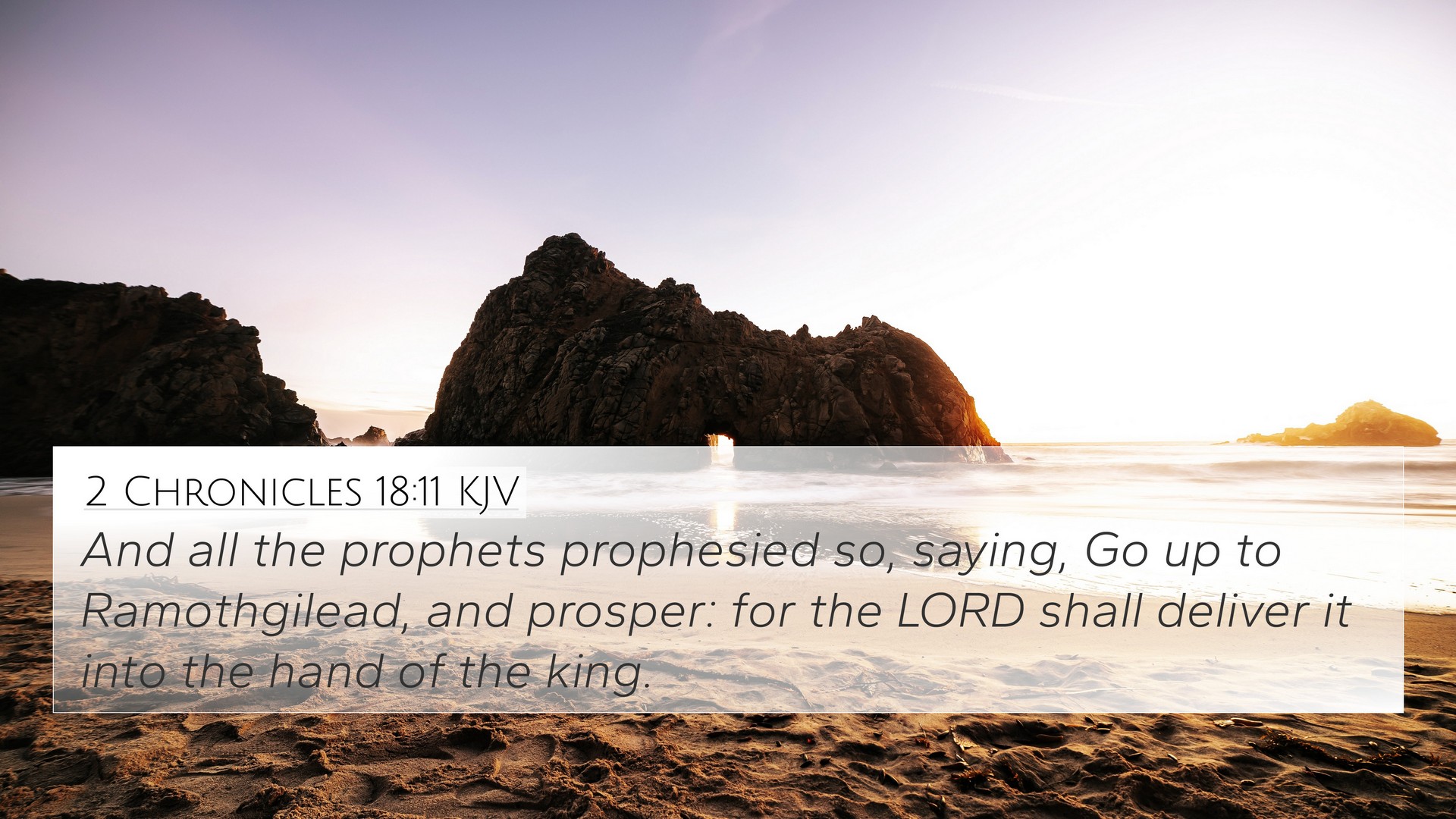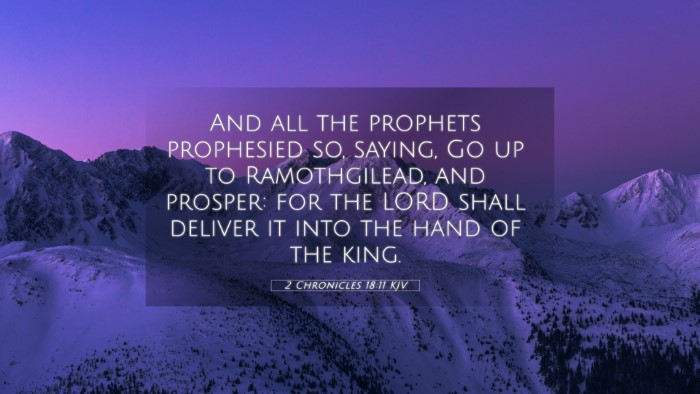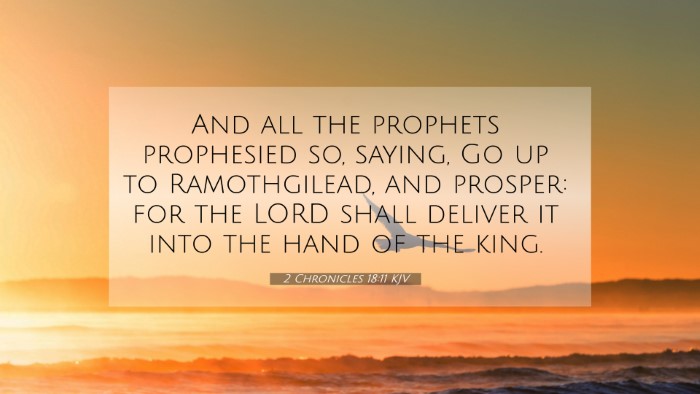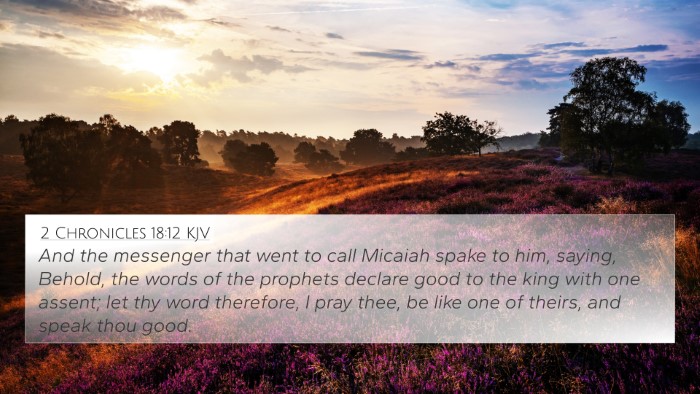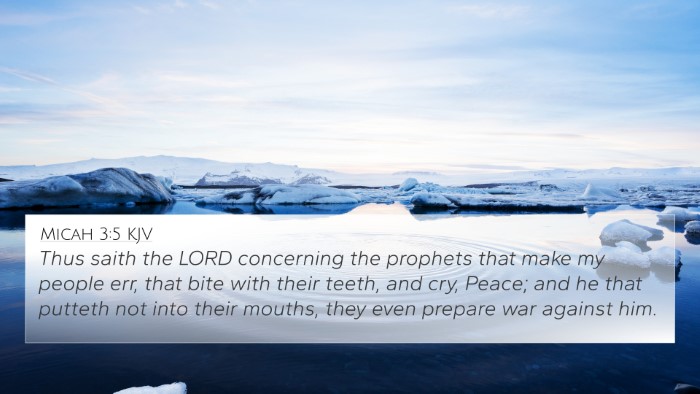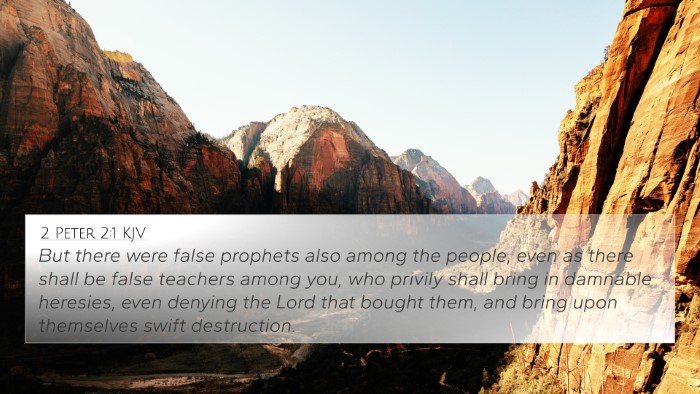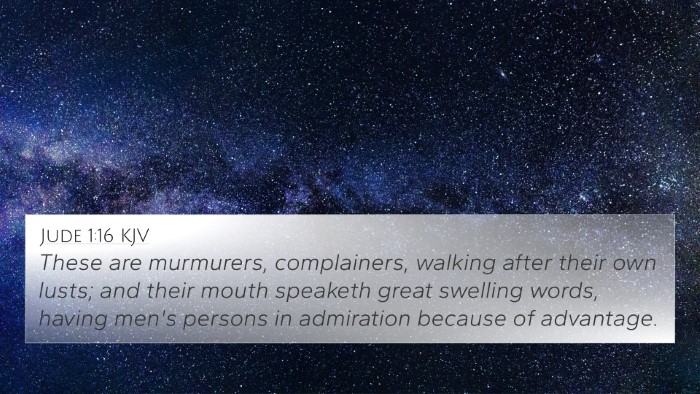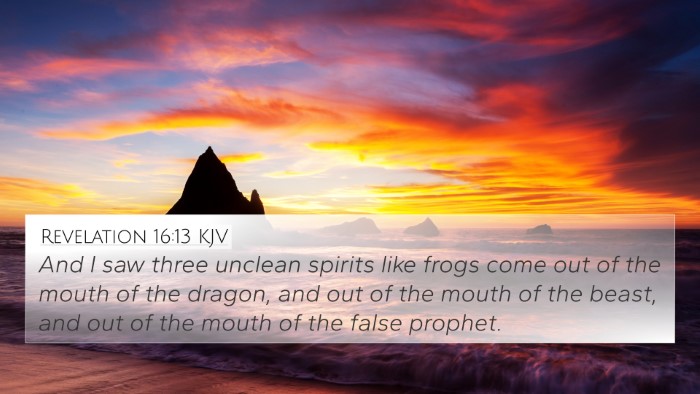Understanding 2 Chronicles 18:11
Verse: "And the prophets did prophesy, saying, Go up to Ramoth-gilead, and prosper: for the Lord shall deliver it into the hand of the king."
Summary of 2 Chronicles 18:11
This verse captures a moment during King Ahab's consultation with his prophets. The prophets express a consensus that Ahab should go to battle, claiming divine favor and victory. This highlights themes of prophetic assurance, the influence of false prophets, and a king's reliance on what he desires to hear.
Insights from Public Domain Commentaries
Matthew Henry's Commentary
Matthew Henry emphasizes the danger of following flattering prophecies. He notes that Ahab desired to hear good news, thus surrounding himself with prophets who catered to his wishes rather than facing genuine counsel. Henry warns that such decisions can lead to dire consequences, as seen in Ahab's fate.
Albert Barnes' Notes
Albert Barnes provides an analysis of the characters involved and the dynamics at play. He points out that these prophets operated in a context where truth was often compromised, illustrating the state of Israel’s leadership. Barnes reflects on God's sovereignty and the distinction between true and false prophecy.
Adam Clarke's Commentary
Adam Clarke notes the specific mention of Ramoth-gilead, a city of strategic importance. He suggests that this location symbolizes the spiritual and moral battles faced by the people and their leaders. Clarke elaborates on the implications of seeking divine approval for actions based solely on personal ambition.
Bible Verse Cross-References
- 1 Kings 22:6-12 - A similar narrative about Ahab seeking the counsel of prophets.
- Jeremiah 23:16 - A warning against false prophets who speak visions from their own minds.
- 2 Peter 2:1 - Refers to the rise of false prophets among the people.
- Isaiah 30:10 - Discusses how people desire prophets to speak smooth things.
- Micah 2:11 - Details how people can be deceived by prophets who lead them astray.
- Romans 16:18 - Speaks of those who deceive the hearts of the simple.
- Deuteronomy 18:20 - Outlines the danger of a prophet presuming to speak in God’s name without His command.
Thematic Connections
This verse can be linked to several broader biblical themes, such as:
- Divine Sovereignty: The idea that God ultimately controls the outcomes of human decisions.
- False Prophecy: The prevalence of misleading messages versus true messages from God.
- The Role of Kings: How authority figures often seek validation rather than truth.
- The Consequences of Disobedience: A recurring theme throughout Scripture where turning away from God's truth leads to judgment.
Conclusion
2 Chronicles 18:11 serves as a critical reminder of the vulnerability of those in power to seek affirmation rather than truth. The insights from Matthew Henry, Albert Barnes, and Adam Clarke offer valuable perspectives on understanding both the mechanism of prophecy and the nature of human desires in light of divine truth. This passage encourages readers to seek genuine counsel informed by scripture, while also employing tools for effective cross-referencing to fully grasp its implications in the context of the entire biblical narrative.
